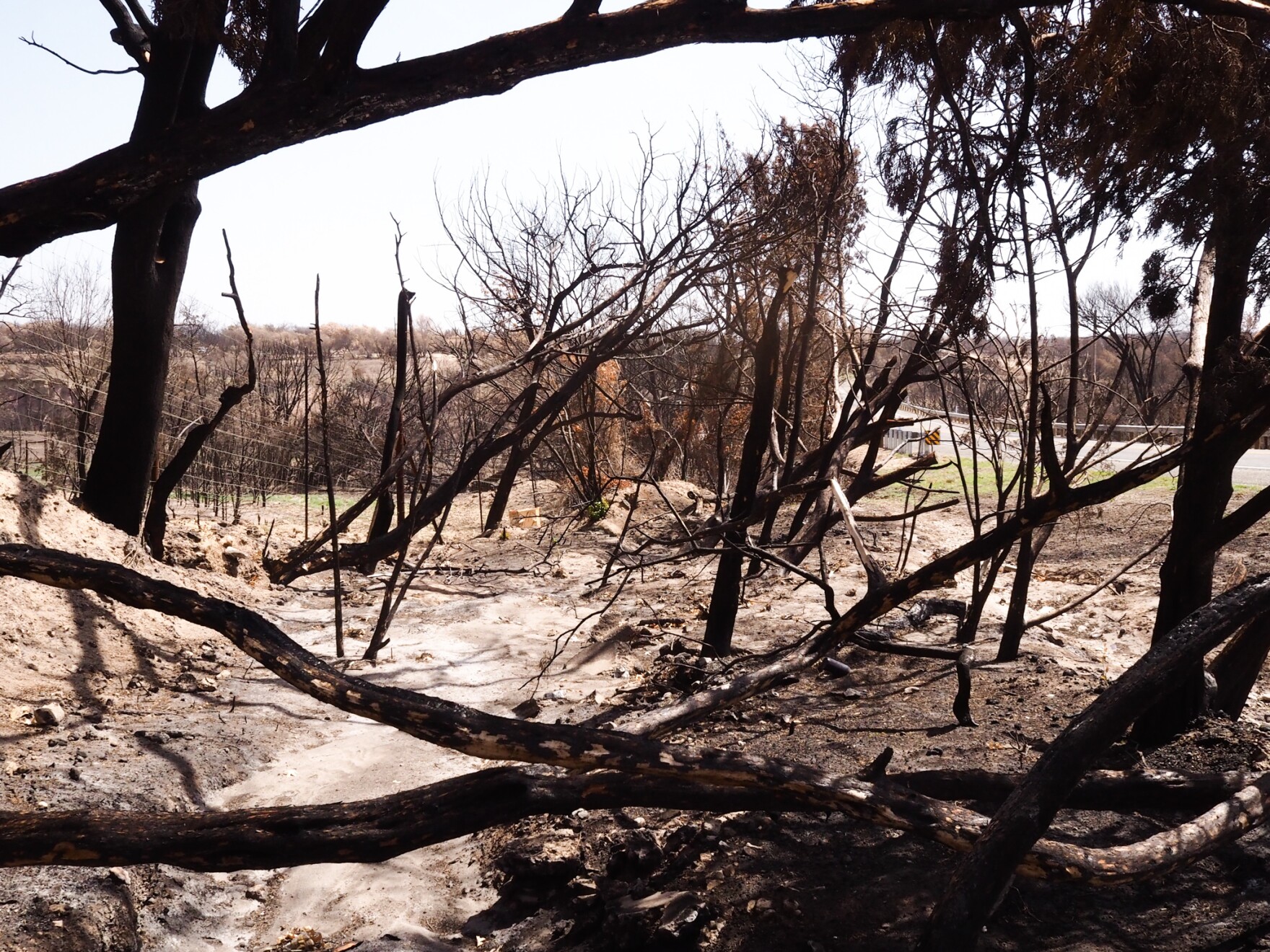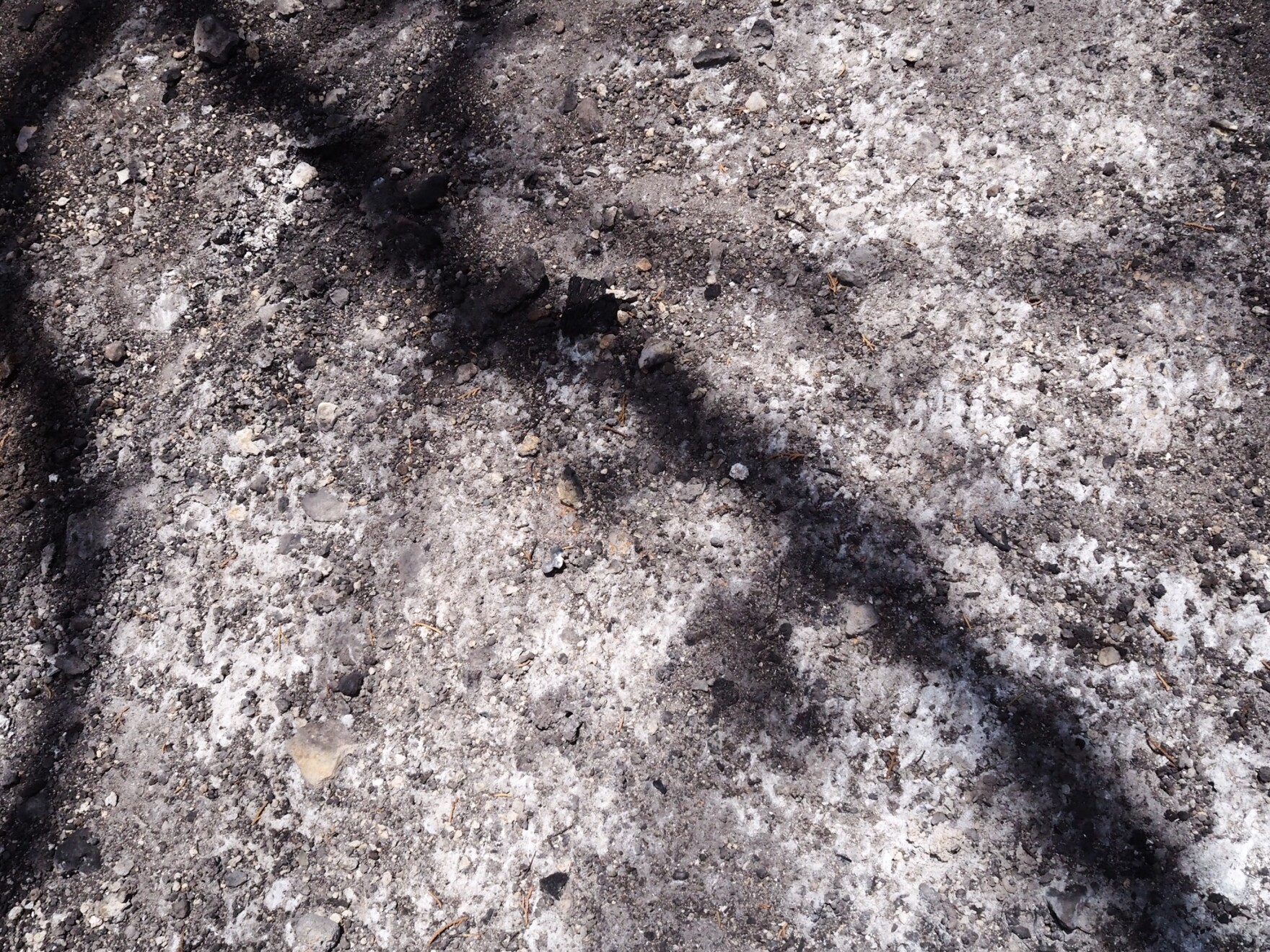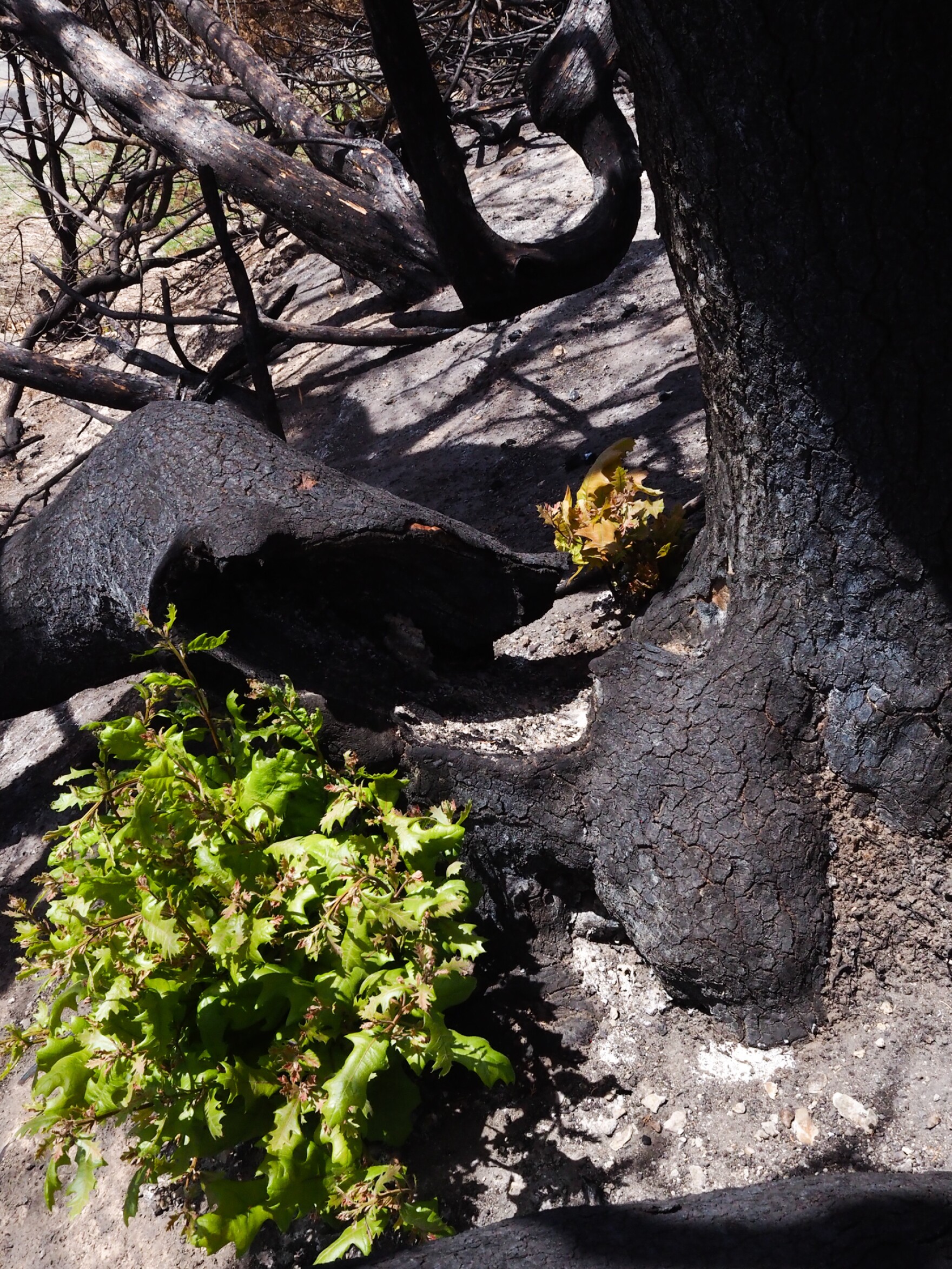- North Carolina legislators fleshing out details on $500M in additional Hurricane Helene relief
- Dangerous travel conditions: Ice, snow and flooding possible
- How photos lost in disasters like Hurricane Helene find their way home, with a little help from people who care
- Dangerous travel conditions, ice/snow and flooding possible in the mountains Tuesday and Wednesday
- Weather Impact Alert: Dangerous travel conditions, ice/snow and flooding possible in the mountains Tuesday and Wednesday
Wildfires bring both destruction and benefits

Texas is facing an intense wildfire season, with already over 200,000 acres burned so far. Of course, wildfires can have devastating consequences for people, agriculture and the environment. But they also bring some positive ecological effects.
The Mesquite Heat fire, off of State Highway 277 scorched nearly 11,000 acres. The fire burned for 12 days and was contained just about two weeks ago. Already shrubs, greenery, and grasses are popping up from the ground in an otherwise charred, black and gray landscape.
“The wildfires, they’re bad,” said Jeff Bonner a former wildlife biologist for Texas Parks and Wildlife. “I mean they’re bad for us, they burn down fences, they burn down people’s houses, sometimes people die.”

Bonner now runs his own range and wildlife consulting business. He notes intense fire seasons Texas has seen in the past decade follow a similar pattern, “So what happens is, the year before had a whole bunch of rainfall, and then the rainfall quits. Then the winter is so dry that then the fuel, the grass and shrubs and stuff, they’re all so dry that they burn really easily.”
Ecology-wise, wildfires hit an area in two important ways. First, they burn agricultural land, destroying crops, grazing fields, and structures.
Through April this year, agricultural losses from wildfires are around $23 million. That’s according to Dr. Monty Dozier, with Texas A&M AgriLife Extension’s Disaster Assessment and Recovery program, “Those producers that may have lost their hay, may have lost their feed, and ya know they also lose grazing land associated with wildfire.”
The losses from May are still being calculated.
Second, fires can lead to flash floods and soil erosion. Karl Flocke is a woodlands ecologist with the Texas A&M Forest Service. He says vegetation intercepts rainfall, “It slows it down, so when it hits the surface of the ground, it hits with a lower velocity, it’s less disturbing, and then once the rainfall is on the ground, the vegetation as well as the organic matter, that really helps to really hold that rainwater in place and let it infiltrate into the soil.”
Without it, water rushes to the nearest low point. It brings along topsoil too, making it more difficult for plants to reestablish themselves.
But while uncontrolled wildfires have destructive consequences, Flocke says fire itself isn’t a bad thing for the plains landscape that covers much of Texas, “This is a fire adapted ecosystem. It’s just the nature of the vegetation we have out there. It will burn, and it is good, to a degree, for the ecosystem.”
And Jeff Bonner says that the vegetation in Texas’s plains have adapted to need fire, “They actually like it, the plants. Because what it does is it creates an opportunity for all fresh growth to renew those plants. Grasses, they love a good fire. It’s just like getting a nice haircut.”

Those positive impacts aside, of course no one wants wildfires happening where they’ll damage crops or property. Referencing the Mesquite Heat blaze, Flocke says harmful fires are expected to continue this summer, “Those conditions still exist that caused this fire in the first place.”
Both Flocke and Bonner agree the best way to fight fire is, in fact, with fire. The two scientists say controlled, prescribed burns can clear dry vegetation, the fuel wildfires rely on to burn.
To protect homes and structures this summer, Flocke suggests clearing plants around them, keeping grass mowed, and raising tree canopies. Flocke also reminds citizens to do their part by being cautious, since nearly 85% of wildfires are started by humans.
Subscribe to Today in Houston
Fill out the form below to subscribe our new daily editorial newsletter from the HPM Newsroom.